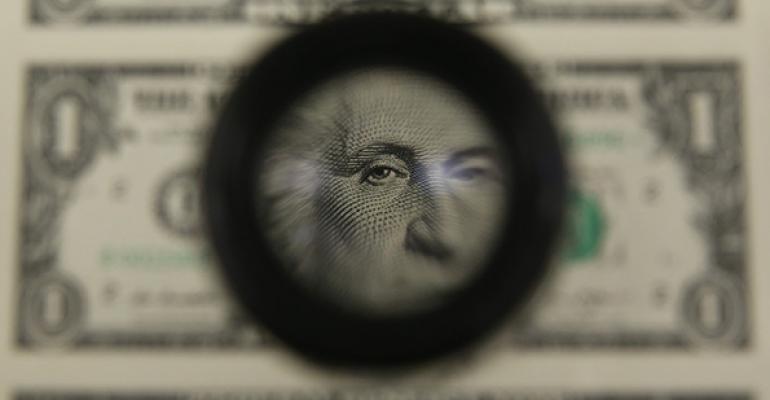The North American Securities Administrators Association (NASAA) proposed new rules to try and reduce the stubbornly high number of arbitration awards for harmed investors that go unpaid. If states adopt the model rules, those regulators could pursue harsher enforcement measures against registrants and firms who aren't paying—including revoking state-issued licenses.
The model rules amend the list of dishonest or unethical business practices of broker/dealers, insurance agents and investment advisors to include a failure to pay arbitration fines or falling short of satisfying the terms of a regulatory decision.
While the national securities regulator, the Financial Industry Regulatory Authority, can bar individuals from working with FINRA-registered firms for not paying arbitration awards or pull the registration of non-compliant firms, those individuals can still be registered under many state regulatory regimes. The NASAA move is an attempt to give state regulators a common rule to enact in their individual jurisdictions.
The move comes in the wake of a newly-released report from the Public Investors Advocate Bar Association (PIABA) arguing that the long-standing issue of unpaid arbitration awards is getting worse. According to the analysis, about three in 10 of FINRA’s publicly available arbitration awards in 2020 went unpaid, with 24% of the money awarded that year also not being paid. In 2019, 27% of cases and 20% of the total money awarded went unpaid respectively, according to PIABA (the group conducted similar studies with similar results in 2016 and 2018).
PIABA has long advocated for FINRA to take the lead in creating a national investor recovery pool to help make harmed consumers whole when advisors and firms are refusing or unable to pay, calling it the ‘best and least expensive option.’
While NASAA approved a model act this past May to assist some securities violation victims in getting their awards, in the request for comment NASAA argued a recovery fund could be hard to enact because there is “not yet widespread political support.” NASAA also argued the amount in a recovery fund could be “finite,” that payouts could be delayed, and that it would not address an advisor or firm’s individual misconduct.
NASAA also said in its public letter that requiring firms to have errors and omissions insurance to protect clients could be a heavy lift, as it is too expensive for smaller firms (though a 2019 NASAA survey found that 77% of broker/dealer respondents had such insurance). It also found that while E&O insurance typically provided for arbitration, high risk alternative products and fraud were often excluded from the coverage.
The proposed NASAA rules would fill a gap by making it easier to keep these state-registered investment advisors out of the industry should they not pay FINRA mandated arbitration awards, according to Hugh Berkson, a principal with the law firm McCarthy, Lebit, Crystal & Liffman, as well as a previous PIABA president and a co-author of the PIABA report.
But, he stressed, victims suffering from unpaid awards would still be at a loss.
“It keeps the same problem from happening to others,” he said. “It does not address those who have already been victimized.”
Nonetheless, Berkson praised the NASAA for moving forward with the proposal. “I know NASAA put a lot of thought into this, and we absolutely commend them for it,” he said. “It would be great if we can get SEC and FINRA’s interest to an equal degree, and get them to actually address the problem head on."
NASAA’s proposed amendments allow for carve outs if “alternative payment arrangements” are made between the b/d or investment advisor and the harmed investor in writing, and the agreement is adhered to. Currently, an advisor or firm has to pay the award within 30 days, unless they have a reasonable defense. FINRA can suspend the respondent for not paying, which would prevent them from working as or associating with an “active FINRA member” until they do so.
However, those suspended firms and advisors can still register with securities regulators in many states in other ways, allowing them to continue their practice while an award goes unpaid, according to the NASAA’s request for comment. NASAA also asked members to consider a range of questions, and asked for other ways the association could address unpaid customer-initiated arbitration awards.
The association’s Broker-Dealer Section Committee developed the new rules, according to NASAA President and Maryland Securities Commissioner Melanie Senter Lubin. The association released the proposed models for public comment after the group’s Board of Directors approved their release this week.
The public comment period runs through Nov. 5. Berkson said that the new NASAA rules indicated that this issue was increasingly on the minds of state securities regulators.





